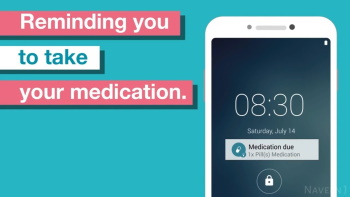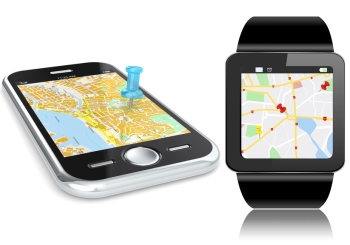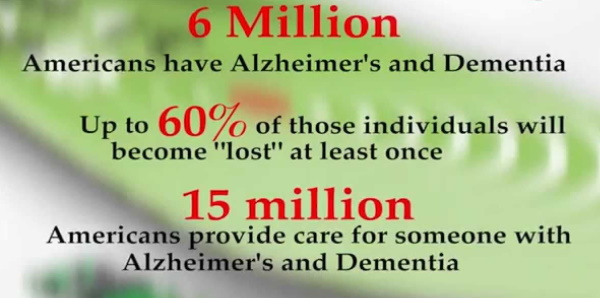Smart Care Technology
Apps and Devices for People With Dementia
Technology has become more user-friendly
for people with Alzheimer's disease and other dementias, as well as
their caregivers. High-tech tools like location trackers can
supervise and assist, while lower-tech tools like special eating
utensils or clothing are also available to make life with dementia
less difficult.
If a loved one is living with dementia learn how smart care technology is helping with different aspects of daily life. The growing number of people with dementia is encouraging care providers to look to technology as a way of supporting human carers and improving patients' quality of life. In particular, we want to use technology to help people with dementia live more independently for as long as possible.
Smart Care Technology utilizes a series of
pre-programmed data-collecting sensors to allow senior care
providers to monitor and alert on the activities of seniors in their
homes or care communities. These can include Apps and devices for
family members with Alzheimer's, dementia, or other conditions with
memory loss.
Implementing smart home technology
for elderly and disabled family members can make aging in place
safer and more enjoyable. A sense of independence helps maintain
a high quality of life, and children of elderly parents
appreciate how quickly smart-home systems alert them to their
parents' needs.
Caregiving is a challenging task, but technology is making it easier. Some believe apps, sensors, smart medical devices, and other technologies even have the potential to make the nursing home obsolete. This may be overly optimistic-but for some seniors and the elderly technology is crucial in helping them age in place at home.
Apps and Devices for People With Dementia
Caregiving can be a challenge-especially when your
loved one has dementia, and when you're far away. Wearable tech
gives caregivers the ability to see where their loved one is at
all times-no matter how far apart they are.
Monitoring
Health
There are a wealth of companies that provide
apps and
technologies making it easier for seniors and their
caregivers to monitor and manage their health-everything from
medication management apps to cloud-based health information
trackers.

A medicine reminder is a simple
smartphone app, and one that can help manage numerous people's
medications thanks to multiple profiles. It also tracks your
prescriptions and reminds you when it's time for a refill. These simplify healthcare management, especially for
patients who see multiple doctors.
Helps keep their minds young.
Memory games and apps can boost cognitive function and
memory-they really do make a difference. Some studies suggest
that even searching the Internet or playing video games can
improve brain function among seniors.
Encourages them to exercise.
It can be difficult to get up and moving as a senior-and many
factors contribute, from mobility issues to lack of access to
classes. But technology can help. YouTube classes in
everything from gentle yoga,
Tai Chi, and Pilates to more challenging
disciplines bring exercise into seniors' living rooms-and these
are often taught by experienced instructors. Wii Fit offers
bowling, yoga, aerobics and balance games, and more for people
of all fitness levels.
Broadens communication.
Sure, ideally we'd all live close enough to visit every day. But many seniors live far from their family members-and this can make it difficult to age where they are.
Loneliness is still epidemic among
seniors. But technologies such as Skype,
Google Chat, and
Facebook Live can help them connect with friends and family all
over the world-no travel required. And even social media
platforms like Instagram and Facebook can make a difference in
helping seniors feel connected to the lives of far-off loved
ones.
In
addition, tools such as heart rate monitors and step counters
can help seniors track their own activity levels and stay
motivated.
Some monitoring systems can be set up around a bed or throughout the house, alerting caregivers whenever an elderly person falls or goes outside of a defined boundary. This helps caregivers keep their loved ones safe from any distance.
Technology may not be ready to make
assisted living obsolete entirely, but it can make a big
difference in senior quality of life. If you're caring for an
elderly loved one, it's worth looking into which apps, sensor
systems, wearables, and other technologies make sense for you
and the person you care for.
Related Articles:
Home | About | Articles | Resources | Site Map | Privacy Policy
Elder Options of Texas
Copyright 2001-2024
All Rights Reserved
DISCLAIMER: Links to other websites or references to products, services or publications do not imply the endorsement or approval of such websites, products, services or publications by Elder Options of Texas. The determination of the need for senior care services and the choice of a facility is an extremely important decision. Please make your own independent investigation.



